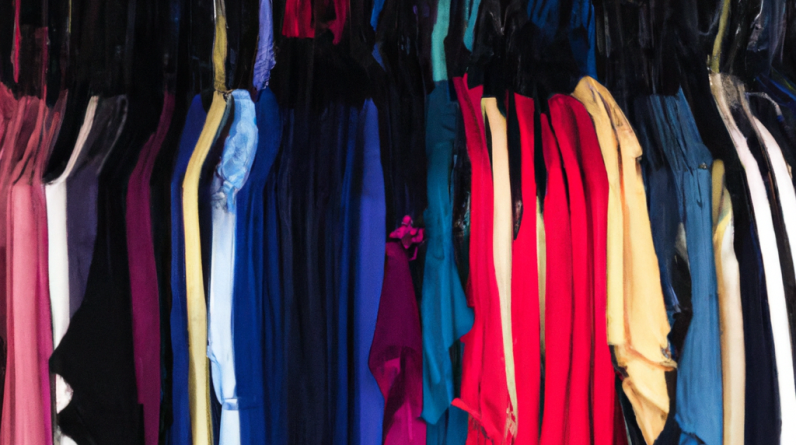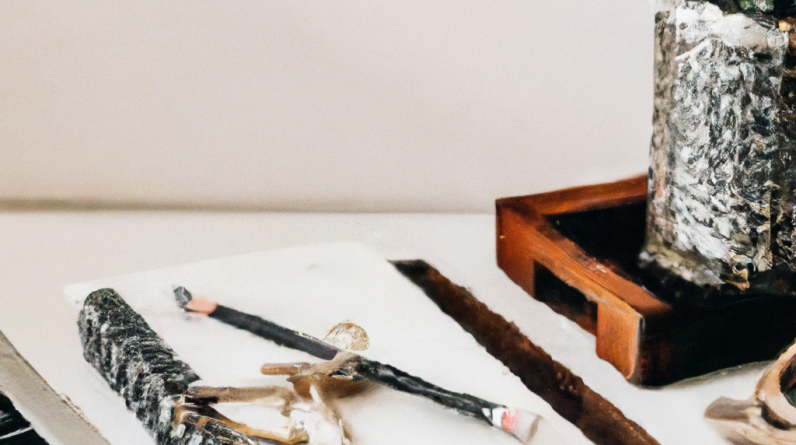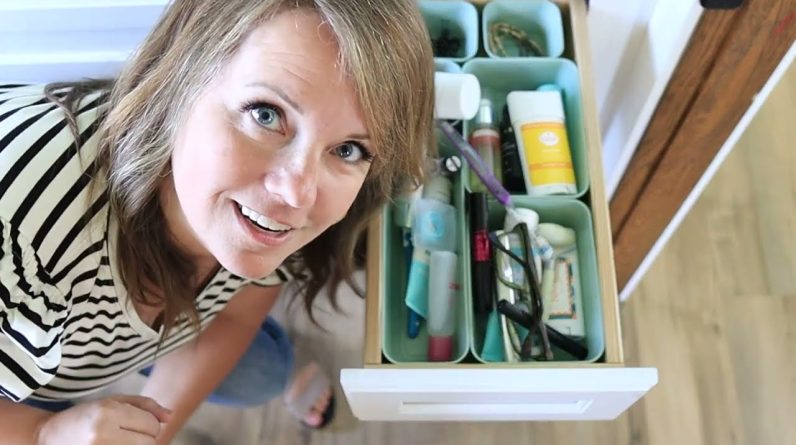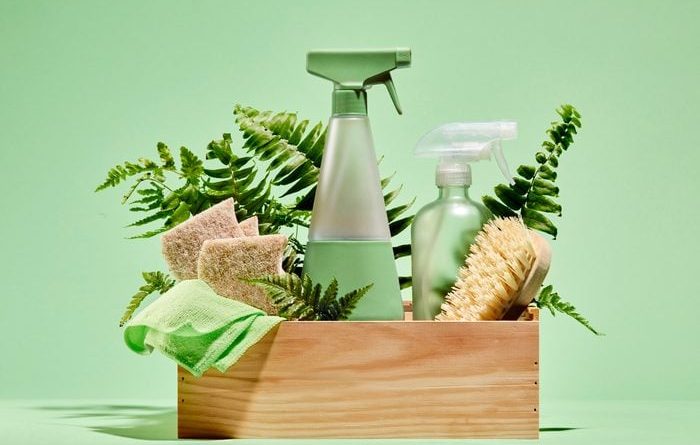
Are you looking for effective ways to tackle your cleaning routine while also minimizing waste? Look no further! In this article, you will discover 10 eco-friendly cleaning tips that will transform your space into a clutter-free and sustainable haven. From reducing single-use plastics to repurposing household items, these practical solutions will not only help you maintain a clean environment but also make a positive impact on the planet. So, grab your cleaning supplies and get ready to embark on a journey towards a greener and cleaner home.
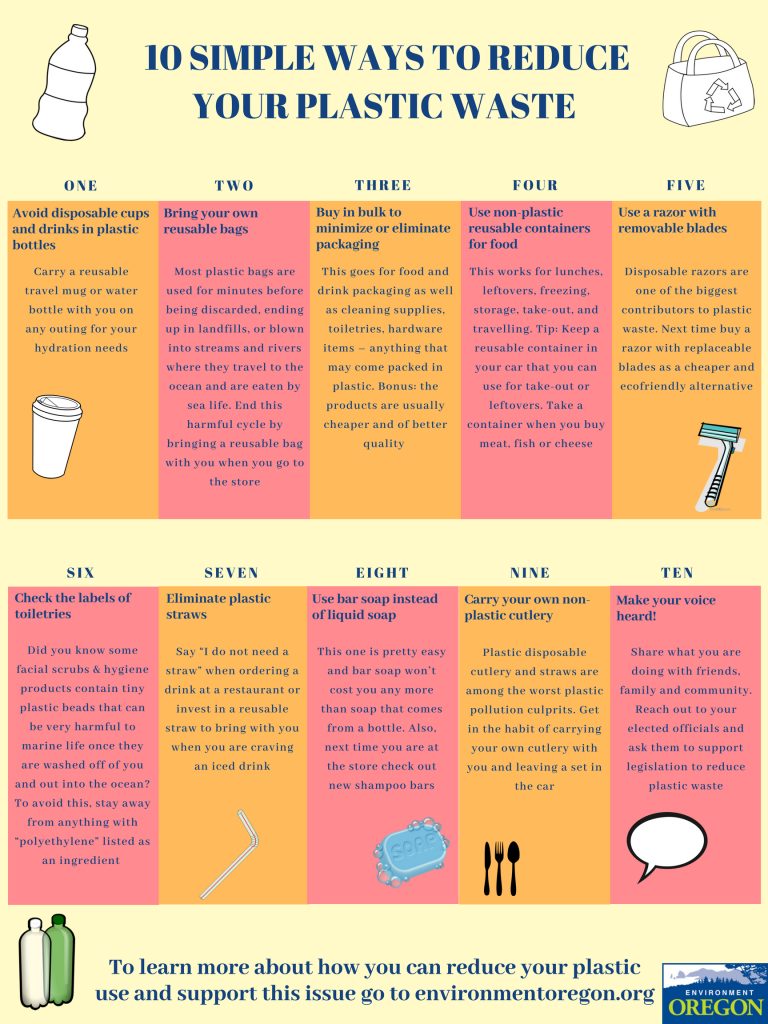
Table of Contents
1. Use Natural Cleaning Products
Choose eco-friendly cleaning products
When it comes to cleaning your home, choosing eco-friendly cleaning products is a great way to minimize waste. Look for cleaning products that are labeled as environmentally friendly or made from natural and biodegradable ingredients. These products are usually free from harsh chemicals that can be harmful to both your health and the environment.
Make your own cleaning solutions at home
Another option is to make your own cleaning solutions using simple ingredients found in your kitchen pantry. For example, a mixture of vinegar and water can be used as an all-purpose cleaner, while baking soda can be used as a natural deodorizer and scrubbing agent. Making your own cleaning solutions not only reduces waste but also saves you money in the long run.
Read labels to avoid harmful chemicals
When purchasing cleaning products, it’s important to read the labels and avoid products that contain harmful chemicals such as bleach, ammonia, or phthalates. These chemicals can have detrimental effects on both human health and the environment. By opting for natural cleaning products, you can ensure a safe and eco-friendly cleaning routine.
2. Reduce Single-Use Cleaning Items
Swap disposable cleaning wipes for reusable cloths
Disposable cleaning wipes may be convenient, but they contribute to unnecessary waste. Instead, consider using reusable cloths or microfiber towels for your cleaning tasks. These can be easily washed and reused, reducing the amount of waste generated. Not only are reusable cloths more sustainable, but they also provide effective cleaning power without the need for harsh chemicals.
Use washable mop heads instead of disposable mop pads
Traditional mop pads often come as single-use and disposable items. To minimize waste, opt for washable mop heads that can be attached to a mop handle. These can be easily cleaned in your washing machine and reused multiple times. By making this simple switch, you can significantly reduce the amount of waste generated during your cleaning routine.
Switch to refillable spray bottles
Refillable spray bottles are an excellent alternative to single-use spray bottles that are often discarded after one use. By investing in a refillable spray bottle, you can simply purchase cleaning solutions in bulk or make your own and refill the bottle as needed. This not only minimizes waste but also saves you money in the long run. Refillable spray bottles are a small but impactful step towards a more sustainable cleaning routine.
3. Opt for Microfiber Cloths
Benefit from the cleaning power of microfiber
Microfiber cloths are a must-have for any eco-friendly cleaning routine. These ultra-fine fibers have exceptional cleaning power, allowing you to effectively clean surfaces without the need for harsh chemicals. The tiny fibers in microfiber cloths act like magnets, trapping and removing dirt, dust, and bacteria from surfaces.
Use microfiber cloths to minimize waste
Using microfiber cloths is a great way to minimize waste compared to traditional paper towels or disposable wipes. Microfiber cloths are durable and can be washed and reused multiple times, reducing the need for single-use items. By opting for microfiber cloths, you not only save money on cleaning supplies but also help reduce the amount of waste ending up in landfills.
Wash and reuse microfiber cloths
To make the most of your microfiber cloths, it’s important to care for them properly. After use, simply rinse the cloth with water and wring it out. For deeper cleaning, you can wash the cloths in your washing machine using a mild detergent. Avoid using fabric softeners as they can reduce the absorbency of the microfiber. By regularly washing and reusing your microfiber cloths, you can maintain their effectiveness and prolong their lifespan.
4. Choose Recycled Cleaning Supplies
Purchase cleaning supplies made from recycled materials
When shopping for cleaning supplies, consider opting for products made from recycled materials. Many eco-friendly brands offer cleaning tools and supplies made from recycled plastic or other sustainable materials. By choosing these products, you support the recycling industry and reduce the demand for new plastic production.
Look for certifications such as ‘Recycled Content’
To ensure that the cleaning supplies you purchase are truly made from recycled materials, look for certifications such as ‘Recycled Content’. These certifications indicate that a certain percentage of the product is made from recycled materials. By choosing products with verified recycled content, you can trust that you are making a sustainable choice for your cleaning routine.
5. Adopt a Minimalist Cleaning Routine
Declutter and organize your cleaning supplies
An essential step towards an eco-friendly cleaning routine is to declutter and organize your cleaning supplies. Take inventory of all your cleaning products and tools and get rid of items that are expired, no longer effective, or unnecessary. By decluttering, you not only create a more organized space but also minimize waste and make it easier to identify what you truly need.
Downsize to essential cleaning tools
In line with decluttering, downsizing to essential cleaning tools is crucial in minimizing waste and adopting a more sustainable approach to cleaning. Assess your cleaning routine and identify the tools that are truly necessary. Invest in high-quality, durable items that will stand the test of time, rather than purchasing numerous low-quality, disposable items.
Focus on multi-purpose cleaning products
Another way to minimize waste is to focus on multi-purpose cleaning products. Instead of purchasing separate products for each cleaning task, look for multi-purpose cleaners that can be used on various surfaces. By reducing the number of cleaning products, you not only simplify your cleaning routine but also minimize the number of containers and packaging that would otherwise end up in the trash.
6. Repurpose and Upcycle Cleaning Tools
Give new life to old cleaning tools
Before disposing of old cleaning tools, consider if they can be repurposed or upcycled. For example, an old toothbrush can be used for detailed cleaning in tight spaces or to scrub grout. A worn-out sponge can be cut into smaller pieces and used as a scrubber or for other household cleaning tasks. By repurposing old cleaning tools, you not only reduce waste but also save money on purchasing new items.
Use old toothbrushes for detailed cleaning
Toothbrushes that are no longer suitable for brushing teeth are perfect for detailed cleaning tasks. The small bristles are excellent for removing grime and dirt from tight corners or hard-to-reach areas. Simply designate an old toothbrush solely for cleaning purposes, and you’ll find it to be a handy tool in your eco-friendly cleaning arsenal.
Find alternative uses for worn-out towels or sponge
Instead of throwing away worn-out towels or sponges, consider finding alternative uses for them. Cut them into smaller pieces to use as cleaning rags or dusting cloths. These can be especially useful for tasks that require more scrubbing power. By giving these items a second life, you extend their usefulness and help minimize waste.
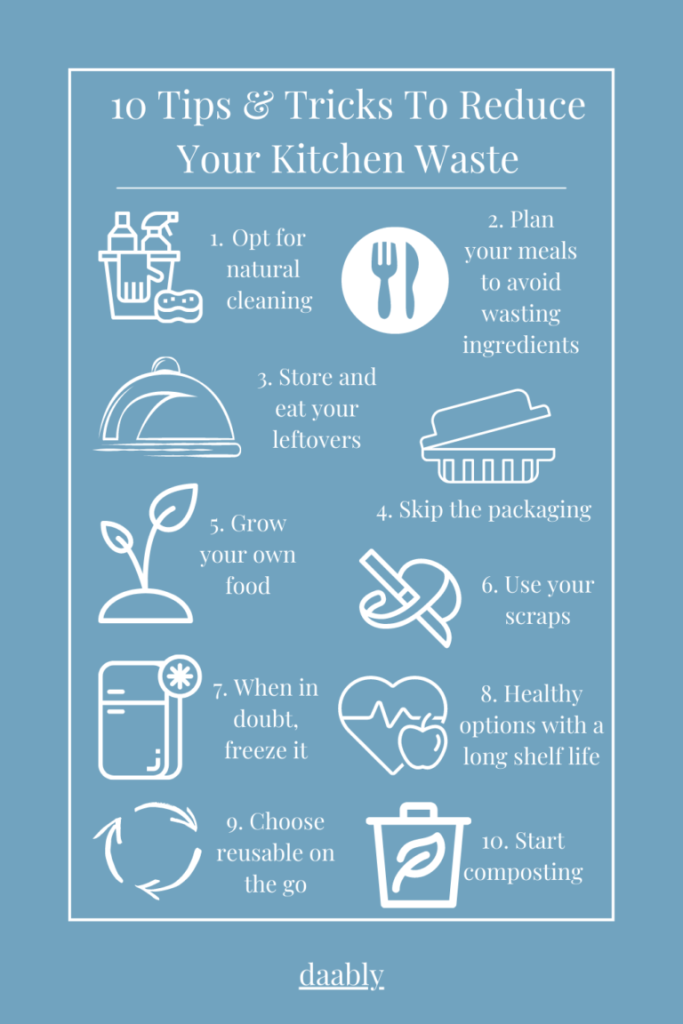
7. Make Use of Natural Cleaning Agents
Harness the power of vinegar for various cleaning tasks
Vinegar is a versatile and eco-friendly cleaning agent that can be used for various tasks around the house. It is effective in removing stains, dissolving mineral deposits, and eliminating odors. Mix vinegar with water in a spray bottle to create an all-purpose cleaner or use it undiluted for tougher cleaning jobs. Vinegar is a natural alternative to harsh chemicals and is safe for both you and the environment.
Utilize baking soda as a natural deodorizer and scrubbing agent
Baking soda, also known as sodium bicarbonate, is another powerful natural cleaning agent. It is gentle yet effective, making it suitable for a wide range of cleaning tasks. Baking soda can be used as a deodorizer to absorb unpleasant smells, or as a gentle scrubbing agent to remove stains and grime. Its abrasive but non-toxic nature makes it a safe option for various surfaces.
Incorporate lemon juice for its natural antibacterial properties
Lemon juice not only adds a refreshing scent to your cleaning routine but also boasts natural antibacterial properties. It can be used as a natural disinfectant and stain remover. Like vinegar, lemon juice can be mixed with water in a spray bottle for general cleaning or used undiluted for tougher stains. Its natural acidity helps break down grease and grime, leaving surfaces clean and fresh.
8. Dispose of Cleaning Waste Responsibly
Separate recyclable cleaning waste
Proper waste disposal is an essential part of eco-friendly cleaning. When disposing of cleaning waste, make sure to separate recyclable items such as plastic bottles or containers. Rinse them out before recycling to prevent contamination. By properly recycling these items, you contribute to reducing the demand for new materials and conserve valuable resources.
Properly dispose of hazardous cleaning waste
Certain cleaning waste may be considered hazardous and should be disposed of properly to avoid harm to both human health and the environment. These include items such as old batteries, expired cleaning chemicals, or broken light bulbs. Check with your local waste management facility or municipality for specific guidelines on how to dispose of hazardous waste safely.
Consider composting certain organic cleaning waste
Some organic cleaning waste, such as food scraps or natural cleaning agents, can be composted instead of being thrown away. Composting is an excellent way to turn waste into nutrient-rich soil for your garden. By composting organic cleaning waste, you reduce the amount of waste sent to landfills and contribute to the health of your soil and plants.

9. Use Energy-Efficient Cleaning Appliances
Choose energy-efficient vacuum cleaners
When it comes to choosing cleaning appliances, opt for energy-efficient models. Energy-efficient vacuum cleaners are designed to consume less electricity while still providing powerful cleaning performance. Look for vacuums with the ENERGY STAR label, as they have been independently certified to meet strict energy efficiency standards.
Opt for eco-friendly laundry machines
Laundry machines are an essential part of any cleaning routine, and choosing eco-friendly models can make a significant difference. Look for washing machines and dryers that are designed to save water and energy. Energy-efficient laundry machines often have features such as shorter wash cycles, load sensing technology, and low water consumption. By choosing eco-friendly laundry machines, you reduce your environmental impact and save on energy bills.
Look for energy-saving features in cleaning appliances
Beyond vacuum cleaners and laundry machines, consider energy-saving features when choosing other cleaning appliances. Look for dishwasher models with energy-saving modes or timers that allow you to take advantage of off-peak electricity rates. By selecting appliances with energy-saving features, you can reduce your overall energy consumption and contribute to a greener home.
10. Share and Spread Eco-Friendly Cleaning Tips
Educate others about the importance of eco-friendly cleaning
One of the best ways to promote eco-friendly cleaning practices is to educate others about its importance. Share knowledge about the harmful effects of conventional cleaning products and the benefits of using natural alternatives. Encourage friends, family, and community members to make small changes in their cleaning routines that can collectively have a significant positive impact on the environment.
Share your favorite green cleaning recipes
If you have discovered effective homemade cleaning solutions or specific techniques that work well for you, don’t hesitate to share them with others. By sharing your favorite green cleaning recipes, you can inspire and empower others to adopt a more sustainable approach to cleaning. Consider hosting a workshop or starting a social media page dedicated to eco-friendly cleaning tips.
Encourage others to adopt sustainable cleaning practices
Lastly, encourage others to adopt sustainable cleaning practices by leading by example. Show your friends and family how easy and rewarding it can be to incorporate eco-friendly cleaning habits into their daily routines. By inspiring others to make small changes, you contribute to a broader movement towards a cleaner and more sustainable world.
In conclusion, adopting eco-friendly cleaning practices is not only beneficial for the environment but also for your overall well-being. By choosing natural cleaning products, reducing single-use items, opting for microfiber cloths, using recycled cleaning supplies, adopting a minimalist cleaning routine, repurposing and upcycling cleaning tools, making use of natural cleaning agents, disposing of cleaning waste responsibly, using energy-efficient cleaning appliances, and sharing eco-friendly cleaning tips, you can minimize waste and create a cleaner, greener, and healthier home. Remember, every small step towards sustainability counts, and by making conscious choices in your cleaning routine, you are making a positive impact.





